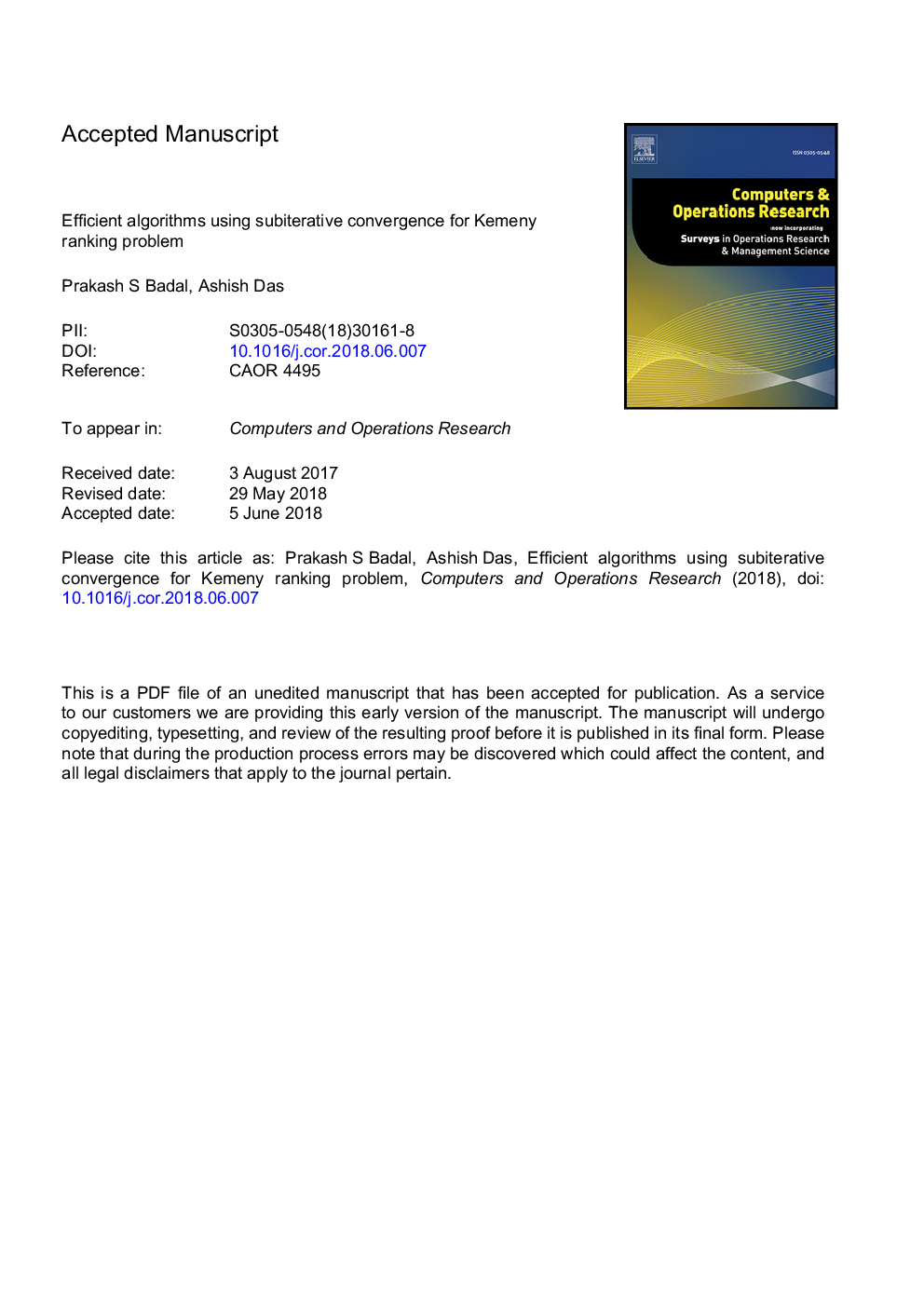| Article ID | Journal | Published Year | Pages | File Type |
|---|---|---|---|---|
| 6892546 | Computers & Operations Research | 2018 | 34 Pages |
Abstract
Rank aggregation problem is useful to practitioners in political science, computer science, social science, medical science, and allied fields. The objective is to identify a consensus ranking of n objects that best fits independent rankings given by k different judges. Under the Kemeny framework, a distance metric called Kemeny distance is minimized to obtain consensus ranking. For large n, with present computing powers, it is not feasible to identify a consensus ranking under the Kemeny framework. To address the problem, researchers have proposed several algorithms. These algorithms are able to handle datasets with n up to 200 in a reasonable amount of time. However, run-time increases very quickly as n increases. In the present paper, we propose two basic algorithms- Subiterative Convergence and Greedy Algorithm. Using these basic algorithms, two advanced algorithms- FUR and SIgFUR have been developed. We show that our results are generally superior to existing algorithms in terms of both performance (Kemeny distance) and run-time. Even for large number of objects, the proposed algorithms run in few minutes.
Related Topics
Physical Sciences and Engineering
Computer Science
Computer Science (General)
Authors
Prakash S Badal, Ashish Das,
